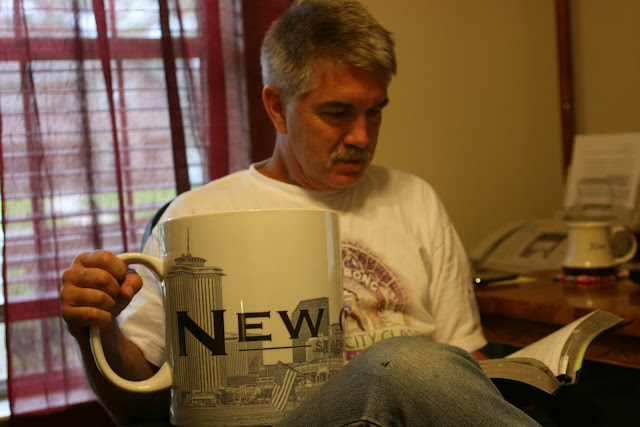On Troubled Hearts
One of the most famous interactions that Jesus had with His disciples was on the last night that He was alive on earth prior to the crucifixion. The setting is in the Upper Room, where Jesus gives his “farewell address” at his last supper with his disciples. He has
• washed his disciples’ feet and has explained to them what this means (13:1-20).
• said that Judas would betray Him and Judas has slipped out into the night (13:21-30).
• told his disciples that he will be with them only a little while longer, and that where he is going, they cannot come (13:33).
• predicted Peter’s imminent denial (13:36-38).
So I understand why the disciples are “troubled” (which I think is a massive understatement–I think they were coming unglued). Jesus is leaving, Judas is off to the Jewish authorities to rat out their location and their spokesperson is going to bail. So Jesus says, “Do not let your hearts be troubled. Believe in God, believe also in me” (14:1). He calls them back to their relationship and assures that He is not abandoning them.As He speaks of His ascension to the Father, Jesus assures his disciples that this is also their destination. But His illustration is fascinating to me.
WARNING: SANCTIFIED IMAGINATION
Jesus says there are many rooms in his Father’s house, and He goes to prepare a place for them, so that they will be with him and dwell with him in his intimate relationship with the Father (14:2-3). Multiple sources describe the custom among first century Jews of the bride joining the groom’s family. Literally, not just symbolically. They would move in.
After the proposal (or rather the brokering of the betrothal) the groom begins to prepare a bridal chamber. He is building an addition–a room–on his father’s house. This process traditionally took a year or more (the length of time being dictated by the groom’s father). When the place was complete, the groom would return and fetch his bride. The bride would not know the day or hour of her fiancee’s return–it depended on the father’s timing–but the groom’s arrival was usually announced with a trumpet call and a shout so the bride had some forewarning. She would then proceed–some legends say that the groom’s attendants would carry her on her bed through the village to the house of the groom’s father where the wedding would take place. The wedding itself (mostly family in attendance) transitioned to the wedding feast (attended by much larger numbers) which could a night, a week or more. The transition was marked by the bride and the groom entering into the room that the groom had built to consummate their marriage.
The biblical references are amazing to me. The Parable of the Ten Virgins (Matthew 25) seems to reference the groom going to get the bride per the custom. D.A. Carson in the Expositor’s Bible Commentary describes the setting this way: “Normally the bridegroom with some close friends left his home to go to the bride’s home, where there were various ceremonies, followed by a procession through the streets – after nightfall – to his home. The ten virgins may be bridesmaids who have been assisting the bride; and they expect to meet the groom as he comes from the bride’s house…Everyone in the procession was expected to carry his or her own torch (a stick with a rag or an oil lamp). Those without a torch would be assumed to be party crashers or even brigands. The festivities, which might last several days, would formally get under way at the groom’s house.”
Jesus changed water into wine at a wedding feast in Cana (John 2) so the celebration is both endorsed and facilitated with miracle. But the most impacting comparison to me is that Jesus is the groom, the bride is the church. He will one day come back for His bride (1 Thess 4:16) with a shout and a trumpet. In the meantime, He prepared a place for us through His death on the cross.
That is why the disciples didn’t have to be troubled. That is why death does not send us into irretrievable despair. He has prepared a room for His bride. He will return to show us the way (which confuses a literal Thomas in 14:4). He wants directions, a map, a GPS turn-by-turn direction. Jesus responds by saying that he himself is the way: “I am the way, and the truth, and the life. No one comes to the Father except through me” (14:6).
This statement by Jesus is a promise, a word of comfort to his disciples. Jesus himself is all they need; there is no need to panic, no need to search desperately for a secret map. Jesus adds, “If you know me, you will know my Father also” (14:7a). The conditional phrase in Greek is a condition of fact, meaning that the condition is understood to be true: “If you know me (and you do), you will know my father also.” So that there can be no misunderstanding, Jesus adds, “From now on, you do know him and have seen him” (14:7b).
In anxiety, despair, death, confusion or doubt, the relationship with Jesus is what centers our future.



